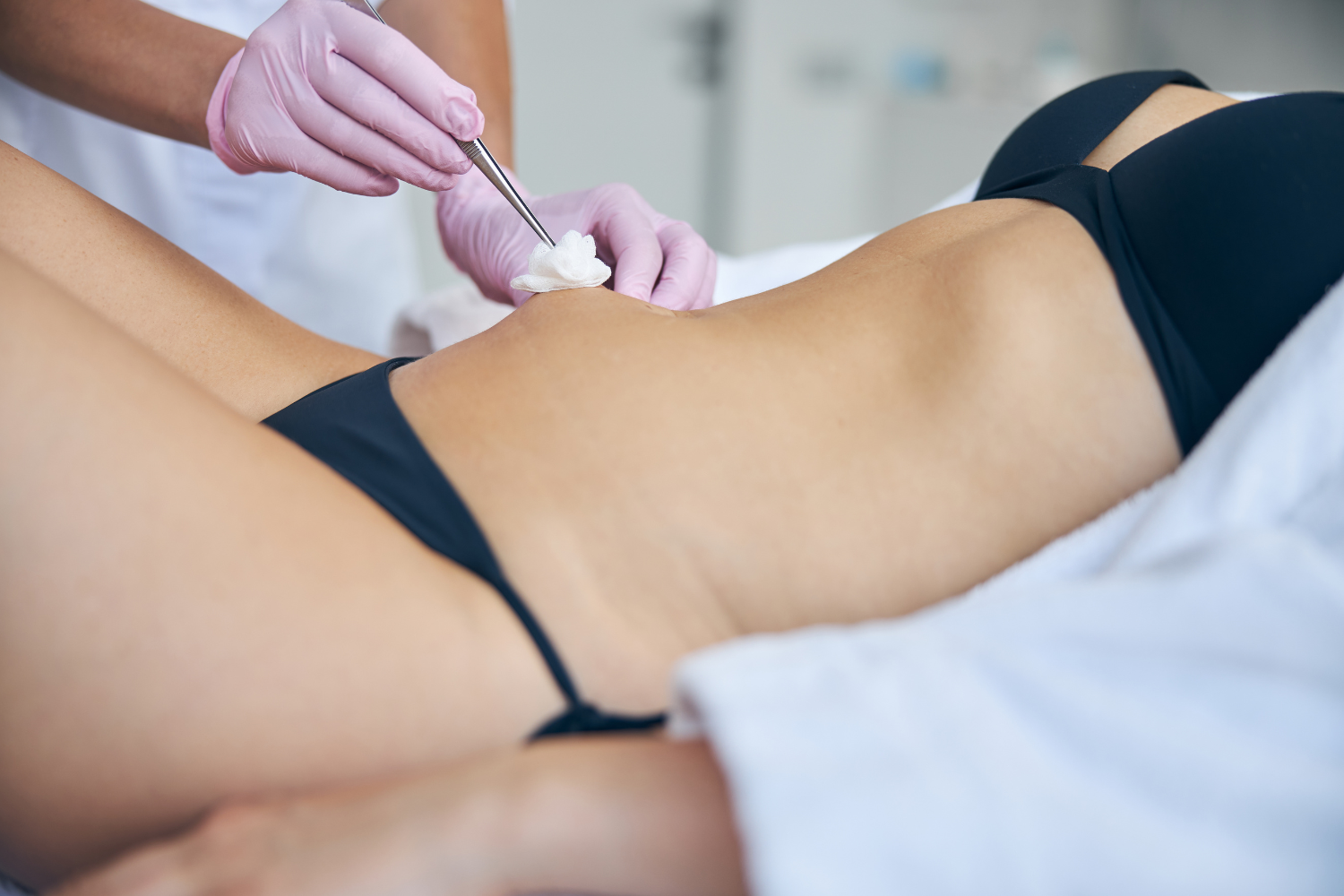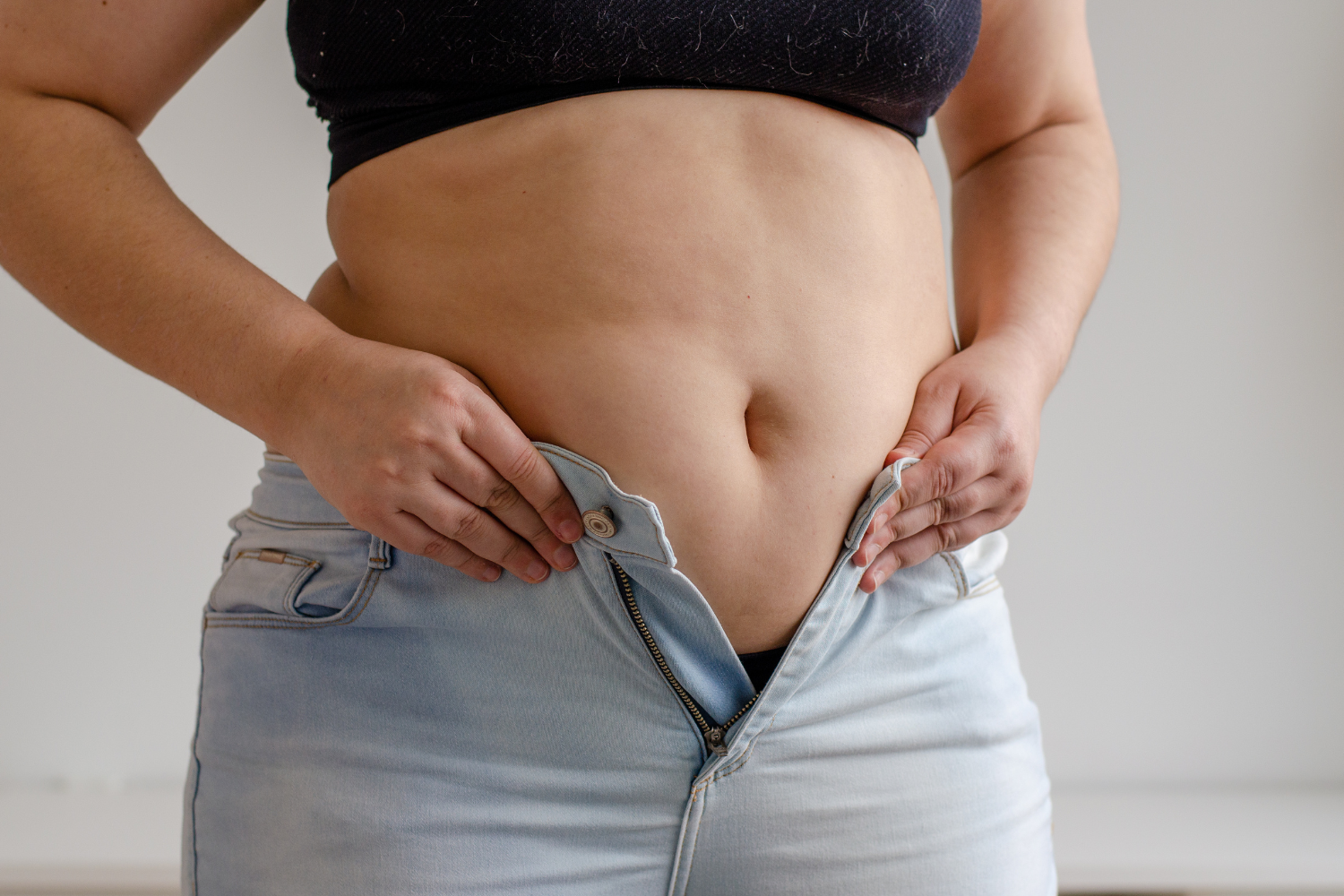Diet after body contouring surgery
Diet after body contouring surgery is key to maintaining and optimizing results. Dr. Garcia guides each patient with a balanced nutritional plan that promotes recovery, reduces inflammation and promotes healthy and sustained healing.

After surgery of body contouring, diet plays a fundamental role in recovering and preserving results. Eating properly helps the body heal faster, decreases the risk of complications and improves the final appearance. A balanced diet, rich in proteins, vitamins and minerals, promotes healing and maintains skin firmness.
Maintaining long-term healthy habits helps to make body contouring results long-lasting. Drink enough water, follow a balanced eating plan and perform physical activity Moderate practices are practices that help to maintain shape and general well-being.
Importance of nutrition after body contouring surgery
Adequate nutrition after body contouring surgery promotes retrieval and helps to maintain the results achieved. The right nutrients contribute to tissue repair, healing and skin elasticity, essential elements for optimal aesthetic and functional recovery.
Tissue recovery and repair
After procedures such as Abdominoplasty, body lift or brachioplasty, the body requires energy and nutrients to regenerate tissues. A balanced diet with enough proteins, vitamins and minerals speeds up this process and reduces the risk of complications.
La Vitamin C And the zinc are especially important, as they stimulate collagen production and strengthen the immune system. In addition, a correct moisture improves tissue oxygenation and promotes healing.
The role of protein in healing
La protein It is essential for the tissue repair And the scarring. After liposuction or a Abdominoplasty, the body needs amino acids to form new collagen and muscle fibers.
Recommended sources include lean meats, fish, eggs, legumes, and low-fat dairy products. In some cases, the surgeon or nutritionist may suggest protein supplements to meet daily requirements.
A study on body contouring surgery in patients with massive weight loss highlighted the importance of body mass index (BMI) and nutritional status in recovery and subsequent quality of life, as described in this clinical analysis.
Key nutrients for skin elasticity
La elasticity of the skin directly influences the aesthetic result of procedures such as thigh lift or body lift. Nutrients such as collagen, the Vitamin E, the omega-3 fatty acids And the silicon help keep the skin firm and supple.
Collagen can be obtained through bone broths or hydrolyzed supplements, while vitamin E and omega-3 are present in nuts, seeds and fatty fish. A diet rich in fruits, vegetables and lean proteins promotes collagen regeneration and improves skin appearance.
Essential components of the postoperative diet
A balanced diet after surgery helps preserve muscle mass, reduce inflammation and promote stable recovery. The building blocks are lean proteins, healthy fats, fiber and adequate hydration.
Recommended sources of lean protein
The body needs lean proteins to repair tissue and maintain muscle strength. Meats such as chicken, turkey or white fish are recommended, as well as legumes, eggs and low-fat dairy products.
Healthy fats and their impact on recovery
Las healthy fats provide energy and help absorb essential vitamins (A, D, E and K). Priority should be given to vegetable oils such as olive, avocado and nuts. Los omega-3 fatty acids, present in salmon and chia seeds, reduce inflammation and promote more stable healing.
Avoiding saturated fats and fried foods is key, as they can delay recovery and increase systemic inflammation.
Importance of hydration and fiber
La moisture maintains healthy circulation and prevents constipation, common after surgery. It is recommended to drink between 1.5 and 2 liters of water a day, or as directed by a doctor. La fibre derived from fruits, vegetables, seeds and whole grains, it regulates intestinal transit and reduces abdominal bloating.
Vitamins, minerals and antioxidants for optimal recovery
A diet rich in micronutrients promotes cell regeneration and healing. La Vitamin C, the Vitamin E, the zinc And the iron are essential for effective recovery.
Vitamin C and Collagen Production
La Vitamin C It is involved in the synthesis of collagen, vital for skin repair. Its deficiency can delay healing. Citrus fruits, kiwis, peppers, and broccoli are great natural sources.
The role of vitamin E, zinc and iron
La Vitamin E acts as an antioxidant and protects cells from oxidative stress. El zinc promotes skin regeneration and iron improves tissue oxygenation. A balanced diet that includes lean meats, legumes and green leafy vegetables helps maintain adequate levels.
Maintain long-term results
Maintaining results after body contouring surgery depends on maintaining a stable weight, following a balanced diet and maintaining a healthy lifestyle. Nutritional education and professional support are essential to sustain the changes achieved.
Weight stability and relapse prevention
After surgery, maintaining weight stability avoids tightening the skin or altering aesthetic results. Specialists recommend avoiding fluctuations greater than 5% of body weight. Una balanced diet with lean proteins, fruits, vegetables and healthy fats it helps to preserve muscle mass without resorting to restrictive diets.
Consultations and nutritional monitoring
El Dr. Garcia Rodriguez and their team accompany each patient beyond the surgical procedure. Their personalized care includes nutritional monitoring and ongoing medical checks to ensure optimal recovery and lasting results. Coordination between surgeon and nutritionist improves long-term results.
Frequently Asked Questions
What are the recommended foods after body contouring surgery?
Priority should be given to foods rich in lean proteins such as chicken, fish, eggs and legumes. Las fresh fruits and vegetables they provide essential vitamins and antioxidants, and a good moisture helps the body eliminate toxins and reduce inflammation.
When can a normal diet be resumed?
Generally, the transition to a regular diet occurs four to six weeks after surgery, depending on individual recovery. The surgeon or nutritionist will indicate when it is safe to reintroduce solid foods.
What foods should be avoided during recovery?
It is recommended to avoid ultraprocessed, the carbonated drinks, the alcohol and products high in sodium or sugar. These can interfere with healing and increase fluid retention.
Why is nutrition important for healing?
Good nutrition accelerates Collagen formation And the tissue regeneration. Nutrients such as vitamin C, zinc and proteins are essential for proper healing and long-lasting results.
Do I need to see a nutrition specialist?
Yes. Un specialized nutritionist can create a plan adapted to each patient, avoiding deficiencies and promoting a more comfortable and safe recovery. In the practice of Dr. Garcia Rodriguez, this support is part of the commitment to comprehensive health and the natural outcomes of each patient.



